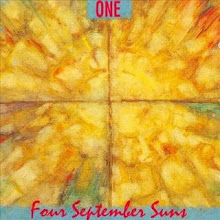
“Everything Changes” by Cicely Herbert
“Everything Changes” (Alles wandelt sich) by Bertolt Brecht.
“Everything Changes” (Alles wandelt sich) by Bertolt Brecht.
At a recent poetry discussion meeting these two poems were mentioned. I have always been interested in examples of how poets are aware of writing and traditions that may belong to a very different time or place, and how individual poets create a kind of dialogue with other writers and texts. Cicely Herbert explicitly acknowledges Bertolt Brecht in the title of her poem, which is the English translation of his poem Alles wandelt sich.
Everything Changes
After Brecht, Alles wandelt sich
Everything changes. We plant
trees for those born later
but what’s happened has happened,
and poisons poured into the seas
cannot be drained out again.
What’s happened has happened.
poisons poured into the seas
cannot be drained out again, but
everything changes. We plant
trees for those born later.
Bertolt Brecht’s poem was written in the 1940’s in the USA, during his exile years from Germany. The following is the English translation by John Willett from Brecht's collected poems.
Everything Changes.
Everything changes. You can make
A fresh start with your final breath.
But what has happened has happened. And the water
You once poured into the wine cannot be
Drained off again.
What has happened has happened. The water
You once poured into the wine cannot be
Drained off again, but
Everything changes. You can make
A fresh start with your final breath.
If we are familiar with Brecht’s career – his commitment to political and social causes, his Marxist driven concepts of “dialectical theatre” and unwavering insistence on the need for art to foster political action, this may seem to be a surprisingly personal, reflective poem. Herbert’s poem, in contrast, may seem the more “political”, taking as a central image the pollution of the oceans - the destruction of the environment- against which the willingness to plant trees without the purpose of personal gain reflects the hope of responsible choice. Herbert is clearly attracted to the shape of Brecht’s poem. The German poet’s skilful use of repetition and counter-balance held together by apparent contradictions (nothing can be done but you can start again with your last breath, everything repeats itself but everything changes). Herbert’s green poem, like much green rhetoric, tend to emphasise the big picture and deal in general concepts. Brecht seems somehow more human, more intimate. Perhaps it is the use of water and wine, their suggestion of the everyday and domestic, or perhaps part of the poem’s impact is the notion of someone being so determined to work at life and get it right that they are open to change even at the point of death. Personally, and even given the impoverishment of translation, I prefer Brecht’s poem. For a writer who was so determined to write to the intelligence he has an ability to move and engage readers that put him alongside the greatest poets of the Twentieth Century. If anything, Herbert’s “Everything Changes” is more a homage than a re-writing, a homage to a poet who can fuse fatalism and hope, resignation and determination.
After Brecht, Alles wandelt sich
Everything changes. We plant
trees for those born later
but what’s happened has happened,
and poisons poured into the seas
cannot be drained out again.
What’s happened has happened.
poisons poured into the seas
cannot be drained out again, but
everything changes. We plant
trees for those born later.
Bertolt Brecht’s poem was written in the 1940’s in the USA, during his exile years from Germany. The following is the English translation by John Willett from Brecht's collected poems.
Everything Changes.
Everything changes. You can make
A fresh start with your final breath.
But what has happened has happened. And the water
You once poured into the wine cannot be
Drained off again.
What has happened has happened. The water
You once poured into the wine cannot be
Drained off again, but
Everything changes. You can make
A fresh start with your final breath.
If we are familiar with Brecht’s career – his commitment to political and social causes, his Marxist driven concepts of “dialectical theatre” and unwavering insistence on the need for art to foster political action, this may seem to be a surprisingly personal, reflective poem. Herbert’s poem, in contrast, may seem the more “political”, taking as a central image the pollution of the oceans - the destruction of the environment- against which the willingness to plant trees without the purpose of personal gain reflects the hope of responsible choice. Herbert is clearly attracted to the shape of Brecht’s poem. The German poet’s skilful use of repetition and counter-balance held together by apparent contradictions (nothing can be done but you can start again with your last breath, everything repeats itself but everything changes). Herbert’s green poem, like much green rhetoric, tend to emphasise the big picture and deal in general concepts. Brecht seems somehow more human, more intimate. Perhaps it is the use of water and wine, their suggestion of the everyday and domestic, or perhaps part of the poem’s impact is the notion of someone being so determined to work at life and get it right that they are open to change even at the point of death. Personally, and even given the impoverishment of translation, I prefer Brecht’s poem. For a writer who was so determined to write to the intelligence he has an ability to move and engage readers that put him alongside the greatest poets of the Twentieth Century. If anything, Herbert’s “Everything Changes” is more a homage than a re-writing, a homage to a poet who can fuse fatalism and hope, resignation and determination.

